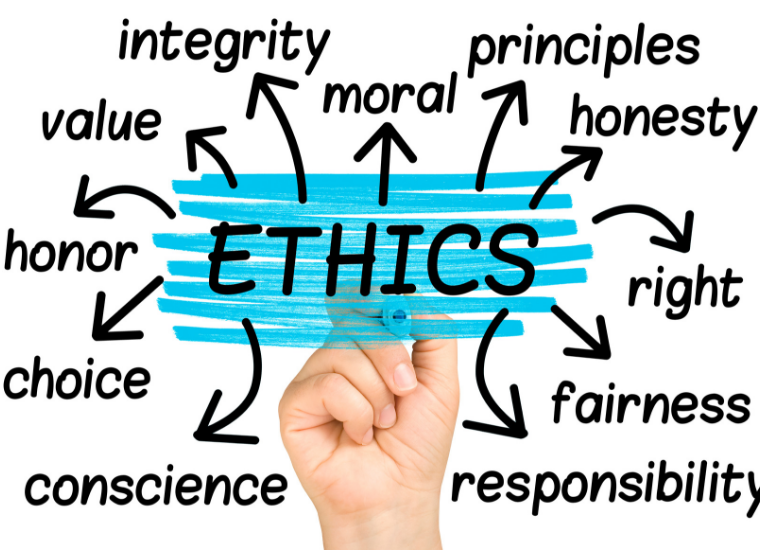Public employees in the United States are entrusted with important responsibilities, and their conduct is expected to be of the highest ethical standard. Violating the code of ethics for public employees can have serious consequences, as it undermines the public’s trust and confidence in government institutions. In this article, we will explore the consequences and legal framework for public employees who breach the code of ethics in the United States.

Code of Ethics for Public Employees
Each state in the United States may have its own code of ethics and conduct for public employees, but there are common principles that generally apply:
- Conflict of Interest: Public employees are expected to avoid any conflicts of interest that could compromise their impartiality and objectivity in carrying out their duties. This includes refraining from using their position for personal gain.
- Confidentiality: Public employees often have access to sensitive information, and they are obligated to maintain the confidentiality of such information.
- Impartiality and Fairness: Public employees are expected to treat all citizens equally and fairly, regardless of factors such as race, religion, gender, or economic status.
- Political Neutrality: In many cases, public employees are require to remain politically neutral and not engage in partisan political activities while on the job.
- Professionalism and Competence: Public employees are expect to perform their duties competently and professionally.
Consequences of Violating the Code of Ethics
When a public employee in the United States violates the code of ethics, there can be various consequences, depending on the nature and severity of the violation. These consequences may include:
- Reprimand: In less severe cases, a public employee may receive a formal reprimand or written warning, which serves as a record of the violation.
- Suspension: For more serious violations, a public employee may face suspension from their duties for a specified period. During the suspension, they are typically not entitle to their regular salary.
- Termination: In cases of grave misconduct or repeat violations, the public employee may be terminated from their position. This is the most severe consequence and can have lasting impacts on their career.
- Legal Action: Violations of the code of ethics can also lead to legal action, including civil or criminal charges. If the misconduct involves criminal behavior, such as bribery, embezzlement, or fraud.
- Loss of Benefits: Some violations can result in the forfeiture of certain benefits, such as pensions or retirement benefits.
- Civil Lawsuits: In addition to administrative consequences, public employees may face civil lawsuits. Particularly if their actions have caused harm or financial losses to individuals or entities.
Legal Framework for Ethics Violations
The legal framework for addressing ethics violations by public employees can vary from state to state but typically includes the following elements:
- Ethics Commissions: Many states have established ethics commissions or boards responsible for investigating allegations of ethics violations. These commissions often have the authority to recommend disciplinary actions.
- Whistleblower Protection: Whistleblower protection laws safeguard public employees who report misconduct or violations of the law or code of ethics. Employees are protect from retaliation for reporting wrongdoing.
- Due Process: Public employees are entitle to due process when facing disciplinary actions. This includes the right to a fair hearing, the opportunity to present evidence, and the right to legal representation.
- Legal Representation: Public employees facing ethics violations may have the right to legal representation during any hearings or investigations.
- Appeals Process: Employees who receive disciplinary actions have the right to appeal these decisions. The appeals process allows for an independent review of the disciplinary action.
Notable Cases of Ethics Violations
There have been several notable cases of ethics violations by public employees in the United States. These cases highlight the importance of upholding ethical standards in government:
- Enron Scandal: While not public employees, the Enron scandal involved corporate executives who violated ethical principles by engaging in accounting fraud. This case led to significant legal consequences, including convictions and lengthy prison sentences.
- Illinois Governor Rod Blagojevich: The former Illinois governor was convicted of attempting to sell the U.S. Senate seat vacated by Barack Obama. He was impeached, removed from office, and sentenced to prison.
- New Jersey Bridgegate Scandal: Government officials were implicate in closing lanes of the George Washington Bridge as political retaliation. Legal consequences included convictions for some involved.
Conclusion
Maintaining the highest ethical standards among public employees is essential to preserve the public’s trust in government institutions. When a public employee in the United States violates the code of ethics. Consequences can range from reprimand and suspension to termination and legal action. The legal framework for addressing ethics violations ensures that due process and fairness are maintain throughout the process. Upholding ethical conduct remains a fundamental principle in the functioning of public institutions. And in the delivery of services to the public.